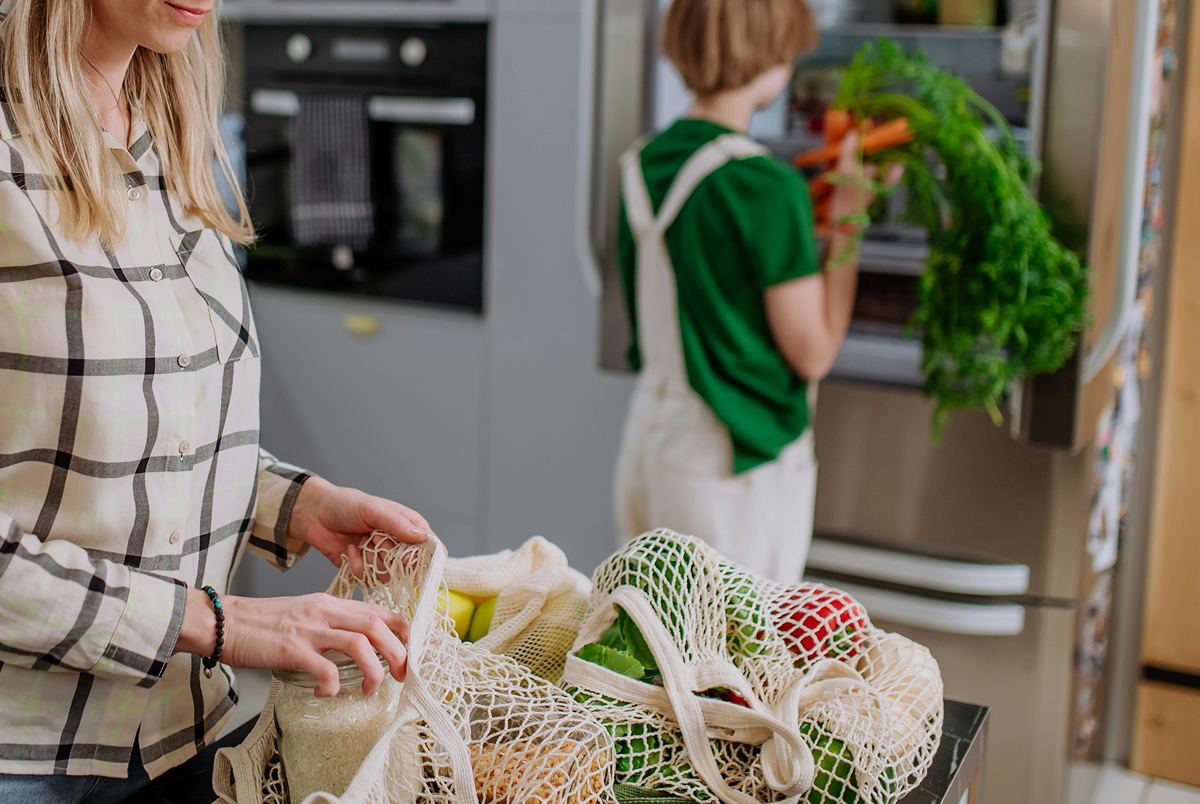
How to Maximize the Shelf Life of Your Food
Posted October 24, 2025 | by Compten
Keeping your food fresh for as long as possible can help you save money, reduce waste, and make meal planning a lot easier. With the rising cost of groceries, every bit of freshness counts. By storing your food properly and keeping a few smart habits in mind, you can make your groceries last longer and get the most out of your weekly shopping trips.
Organize Your Fridge and Pantry
A well-organized fridge is the first step toward longer-lasting food. The temperature in most refrigerators should be kept between 3 to 4°C to slow bacterial growth, and it’s a good idea to place a small thermometer inside to ensure it’s staying cool enough.
Ready-to-eat foods like leftovers, drinks, and dairy belong on the top shelves, while cooked meats, eggs, and items that need consistent cooling should be kept in the middle. The bottom shelf is the safest place for raw meat, poultry, and fish, which should always be stored in sealed containers to prevent dripping and cross-contamination. Fruits and vegetables should be kept in the crisper drawers, and if possible, separated. Certain produce, like apples and bananas, release ethylene gas that can cause nearby fruits and veggies to ripen too quickly. You can also keep chopped vegetables like carrots and celery in a jar of water in the fridge to extend their freshness.
Your pantry also deserves some attention. Keep it clean, dry, and well-organized. Store dry goods such as pasta, rice, and cereal in airtight containers to prevent moisture. Make it a habit to rotate items regularly by moving older products to the front and newer ones to the back so nothing gets forgotten at the back of the shelf. If you live in a smaller apartment with limited pantry space, vertical organization can make a huge difference. Consider using stackable containers or tiered shelving to make the most of every inch. Clear jars and bins help you see exactly what you have, reducing duplicate purchases and forgotten items.
Use Your Freezer Wisely
Your freezer is one of the best tools for extending shelf life. Many foods can be frozen to preserve freshness, including bread, meat, soups, and even certain fruits and vegetables. To make the most of your freezer, label and date everything before storing it. Knowing how long something has been frozen helps you plan meals and avoid freezer burn. It’s also helpful to freeze food in small portions, which makes defrosting easier and reduces waste. Always use freezer-safe bags or containers to protect against frost and unwanted odours. As a general rule, most frozen foods are best consumed within three months for optimal taste and texture.
Know What Belongs in the Fridge and What Doesn’t
It’s important to know that not all foods belong in the fridge. Onions, garlic, and potatoes, for example, should be stored in a cool, dark place rather than the refrigerator. Tomatoes and bananas should also be kept out of the fridge. However, once certain fruits like avocados or peaches ripen, it’s a good idea to move them into the fridge to keep them fresh for a few extra days. Always check the labels on jars and containers to see whether they need to be stored in the refrigerator after opening.
Practice the “First In, First Out” Rule
A simple but effective habit to adopt is the “first in, first out” rule. Always use your oldest items first. Whether it’s milk, condiments, or canned goods, this method helps minimize waste and ensures you’re consuming food before it spoils. When unpacking groceries, take a moment to move older items to the front and place new ones behind them. It’s a small step that can make a big difference in keeping your fridge and pantry fresh and without waste.
Keep an Eye on Dates
“Best before” dates can often be misunderstood. These dates refer to the product’s peak quality, not necessarily safety. Many items like dry pasta, canned goods, and condiments can still be safely consumed after their best before date if they’ve been stored properly and show no signs of spoilage. That said, always trust your senses. If something smells off, looks strange, or has visible discolouration, it’s always safest to discard it.
By making a few small changes to how you store and handle your food, you can stretch your grocery budget further and significantly cut down on waste. Not only is this good for your wallet, but it’s also a more sustainable way to live, especially in apartment communities where space and efficiency matter. With a little reorganization and a few extra checks, you’ll be surprised at how much longer your groceries can last.
